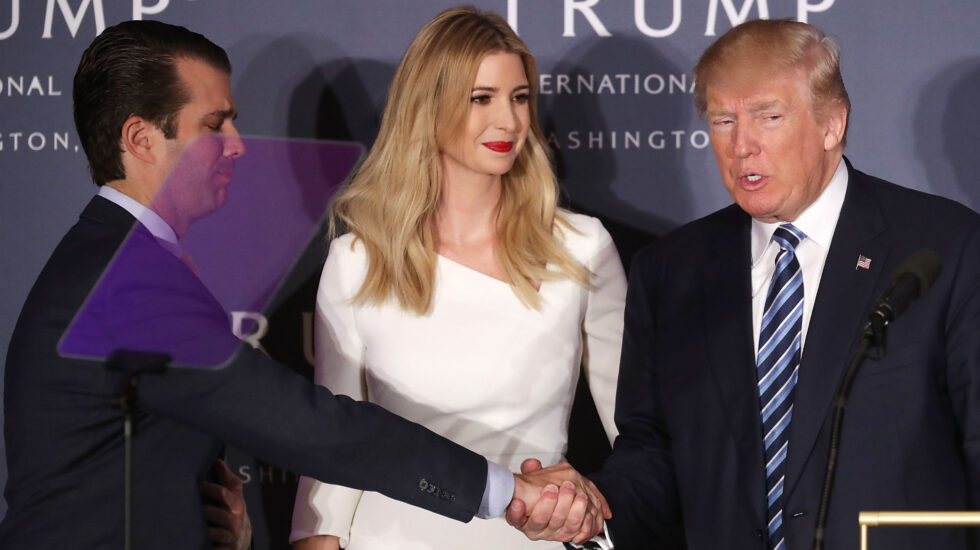New York Attorney General Letitia James filed court papers Tuesday night alleging that the Trump family engaged in a pattern of potential fraud by routinely misstating the value of their properties to lenders, insurance companies, and the Internal Revenue Service.
James’ filing is the latest development in her quest to compel testimony and documentary evidence from Donald Trump and his children Donald Trump Jr. and Ivanka Trump. Earlier this month, the family asked a judge to quash subpoenas filed by James’ office, insisting that her civil investigation into the Trump Organization is “politically motivated.”
In response to that charge, James outlined a series of “fraudulent or misleading” practices used by the Trump family as proof that her subpoenas are valid. She said Ivanka and Donald Jr. directed some of the potential fraud and that the former president “had ultimate authority over a wide swath of conduct by the Trump Organization.”
Eric Trump, Donald Trump’s second son, was forced to comply with a subpoena from James’ office last year.
“Thus far in our investigation, we have uncovered significant evidence that suggests Donald J. Trump and the Trump Organization falsely and fraudulently valued multiple assets and misrepresented those values to financial institutions for economic benefit,” James said in a statement Tuesday. “The Trumps must comply with our lawful subpoenas for documents and testimony because no one in this country can pick and choose if and how the law applies to them.”
According to James’ court filing, the Trump Organization:
- Lied about the size of the former president’s Trump Tower Penthouse, adding 20,000 square feet. Allen Weisselberg, the Trump Organization’s longtime chief financial officer who was indicted over the summer, told prosecutors that the extra size added nearly $200 million to the value of the penthouse.
- Boosted the value of the company’s Seven Springs Estate in Westchester County by including the cost of seven nonexistent mansions.
- Based the value of Aberdeenshire golf club in Scotland on the potential to build 2,500 luxury homes on the property, even though it was only approved to construct fewer than 1,500 “holiday apartments.”
- Included the worth of the Trump brand in some of its valuations of golf clubs, despite making statements to the contrary.
- Claimed 40 Wall Street, a Manhattan building owned by the company, was worth $735 million in a 2015 application to refinance it. One lender valued the property at just $257 million.
NBC News provides key context:
James is conducting a civil investigation into whether the Trump Organization committed fraud in reporting the value of certain properties to banks and tax authorities.
Banks and other lenders need to know the precise financial condition of loan applicants before they make loans. If a company overstates its financial condition in order to get a loan, making its finances seem rosier than they really are, that can be considered fraud. The filing says that Trump’s financial statements “were generally inflated as part of a pattern to suggest that Mr. Trump’s net worth was higher than it otherwise would have appeared.”
The New York Times adds:
Because Ms. James’s investigation is civil, she can sue Mr. Trump and his company but cannot file criminal charges. Her inquiry is running parallel to a criminal investigation led by the Manhattan district attorney, Alvin Bragg, which is examining some of the same conduct. Ms. James’s office is participating in that separate investigation, which is continuing. Mr. Bragg, also a Democrat, inherited the inquiry from his predecessor after taking office on Jan. 1.



